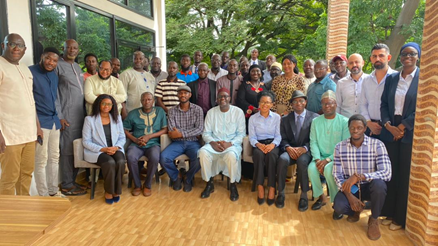By Kebba AF Touray
The Gambia’s Public Utilities Regulatory Authority (PURA), on Wednesday, 4 September 2024, in collaboration with stakeholders, validated the Infrastructure Sharing Regulations (ISR).
The purpose of the validation workshop was to present the regulations and invite input from the stakeholders.
The interface was also to avail PURA the opportunity to hear from stakeholders as well as the people most affected by the regulations.
Rodine Renner, Director of Information and Communication Technology at PURA, explained that PURA, through the World Bank, engaged a consultant to conduct a study on infrastructure sharing between the service providers.
“This arrangement usually helps service providers to minimize the amount of money they spend on infrastructure and instead would spend it on their core activity to improve the quality of their networks for the benefit of their consumers,” he said.
He added that at the end of the study, a RIO was developed for the industry and consequently by the sector players, most of whom were present at the meeting.
According to him, to implement these RIOs, there was a need to come up with an infrastructure regulation, to guide the industry in seamlessly implementing this important project.
The project, he said, will take care of some environmental issues, health and safety, and noise pollution, carbon dioxide pollution among others.
The Director General of PURA, Dr. Njogu L Bah, said that the day marks a significant step forward in their journey towards ensuring a more effective, efficient, and inclusive infrastructure ecosystem for their telecommunications and digital economy sectors.
He said, “PURA, in collaboration with our partners and the Ministry of Communication and Digital Economy, has invested considerable efforts in developing these draft regulations.”
He added: “This is a crucial step in ensuring that these regulations not only meet the current needs of our sector but also position us well for the future.”
Infrastructure, he said, is a key component in the evolution of the Gambia’s digital economy, adding that it promotes optimal use of resources, reduces duplication, and enables service providers to reach underserved areas more efficiently.
At its core, DG Bah said infrastructure sharing is about fostering collaboration over competition, creating a level playing field where both larger and small players can thrive.
Ultimately, he added the goal is to benefit the consumers who rely on their services for their day-to-day life activities, and “the draft regulations we are discussing today, were carefully crafted by a dedicated committee.”
The resulting document, he went on, reflects their devotion to creating a regulatory environment that balances the interests of all stakeholders (service providers), consumers, and regulators alike.


















